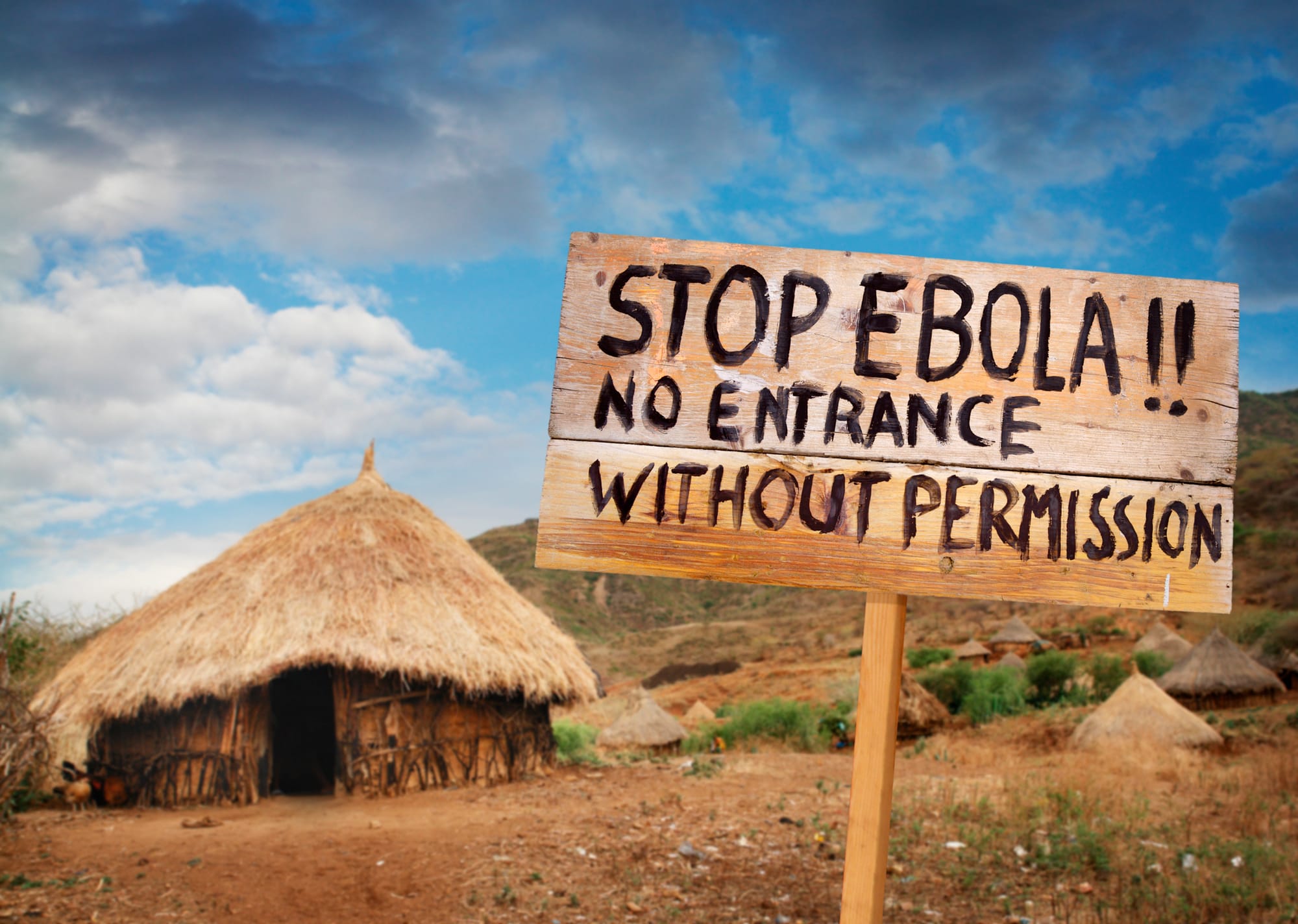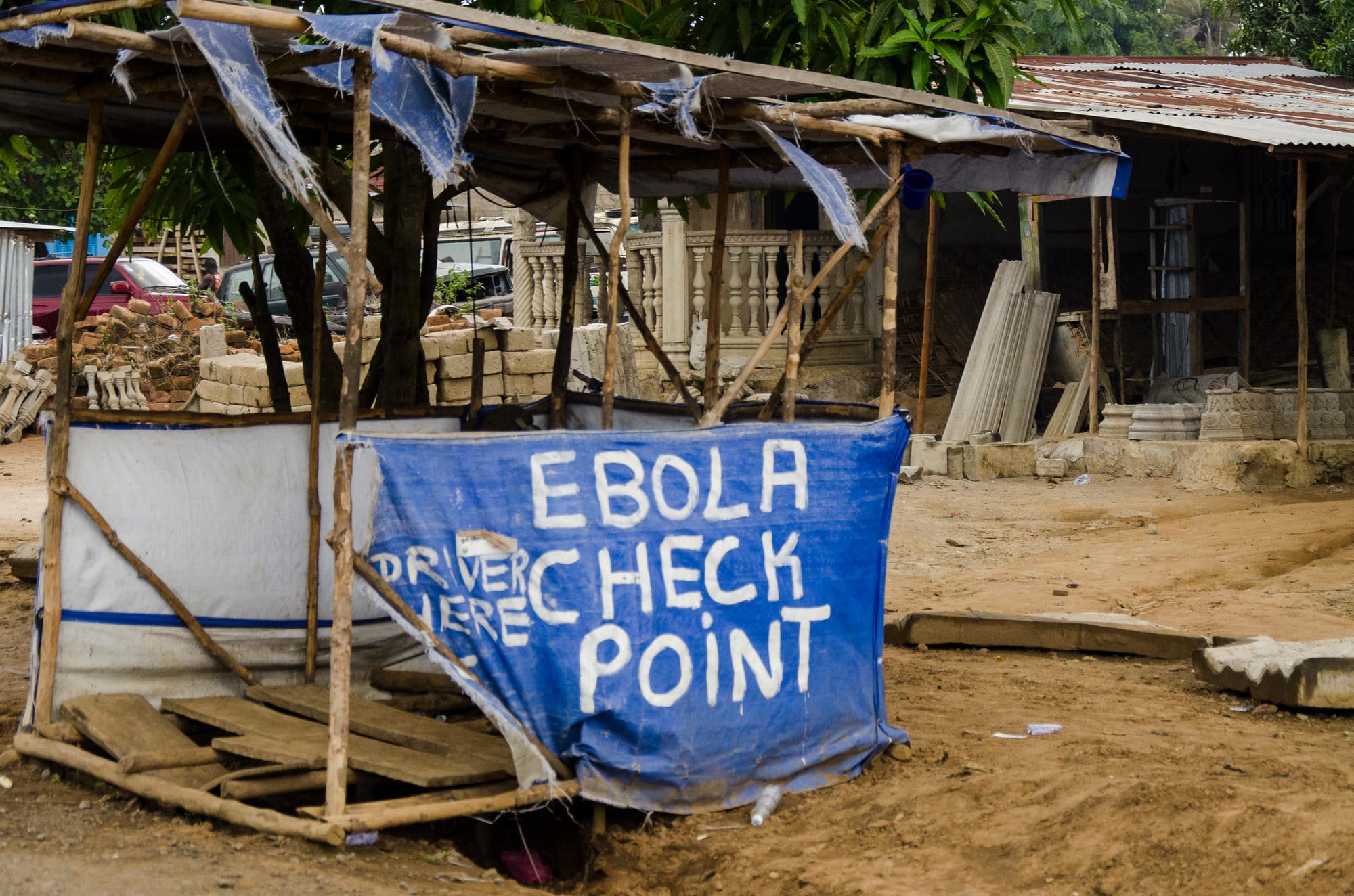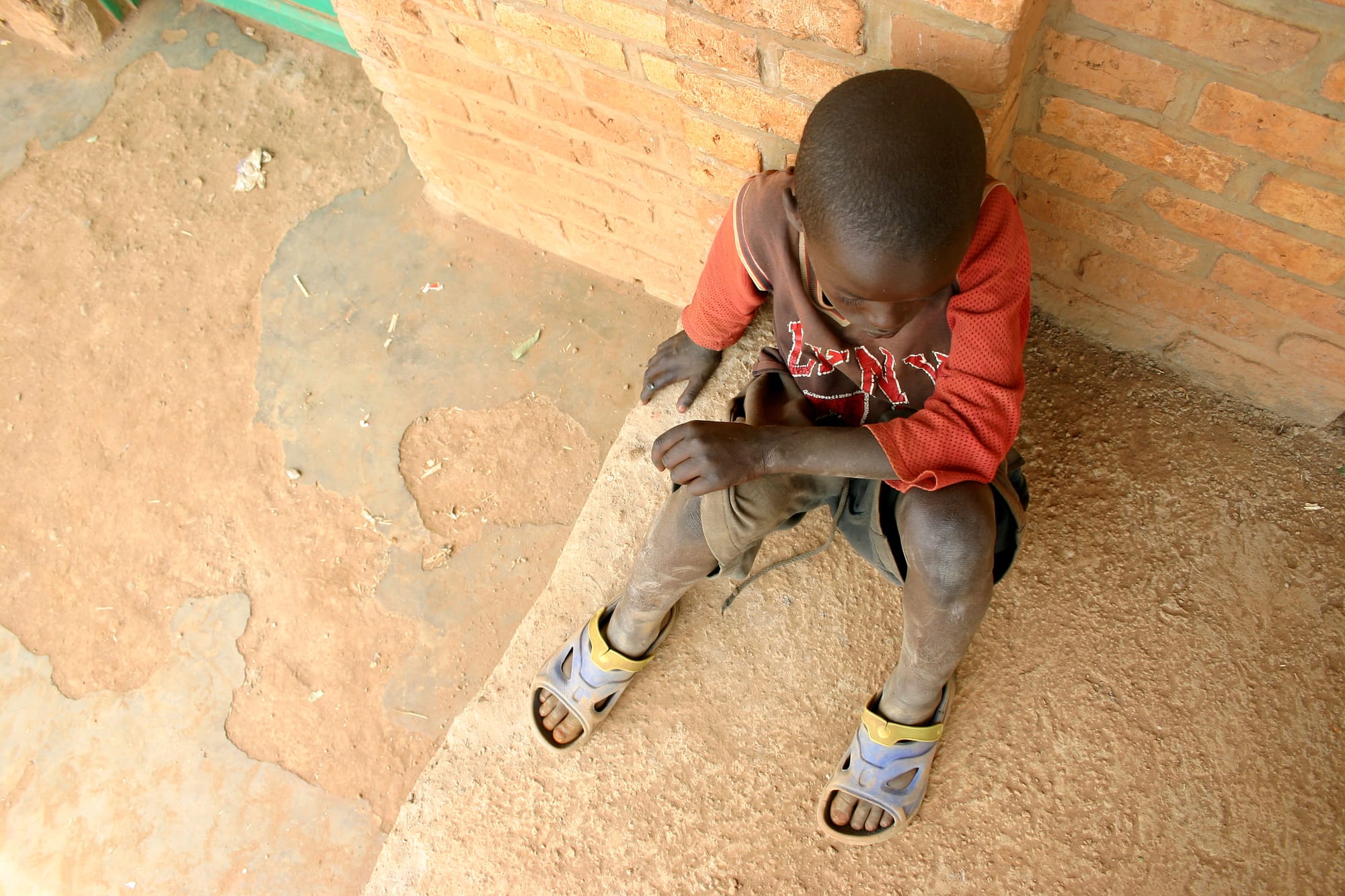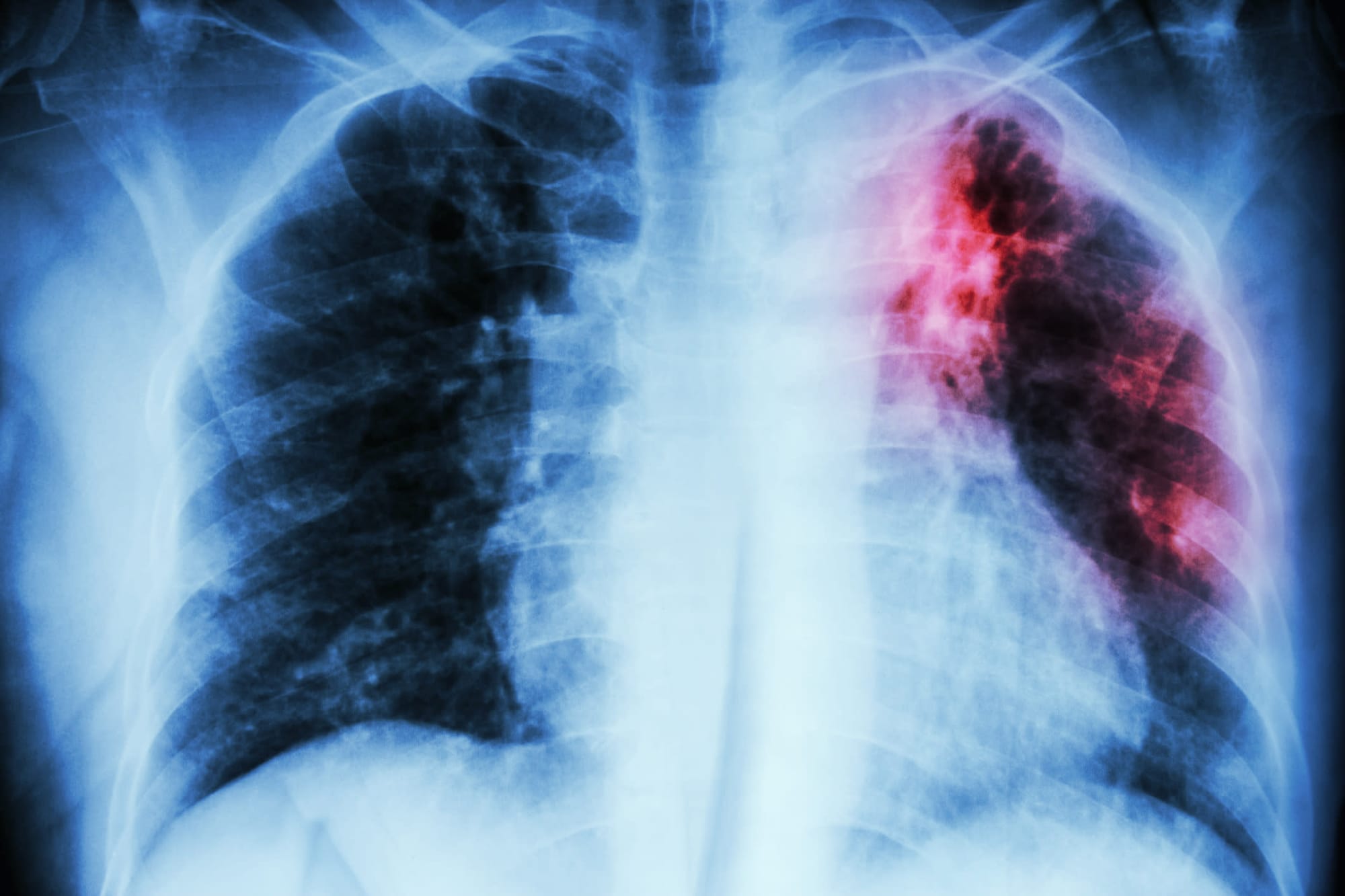
In April this year, a police officer died from fever and internal bleeding in a small village in the Equateur Province of Democratic Republic of Congo (DRC). Eleven of his family members became ill after the funeral, and seven of them – the ones who had tended the body after his death – also died. Forty-two years after its first appearance, Ebola virus disease had again returned to Africa.
Since the police officer’s death, 29 people have died from Ebola in the DRC – including two healthcare workers – out of 62 reported cases. Ebola has no proven cure, and no licensed vaccine. Authorities acted swiftly to prevent the infection spreading to urban areas, hoping to avoid another large-scale epidemic such as the one that killed 11,000 people in Guinea, Liberia and Sierra Leone in West Africa between 2013 and 2016.
No new cases have been confirmed since June, and the World Health Organisation (WHO) is cautiously optimistic that the worst is over.
Professor Michael Selgelid, the Director of the Monash Human Bioethics Centre, served as an adviser to the World Health Organisation’s Ebola Emergency Committee during the West African epidemic – the worst Ebola outbreak yet seen – and he was more recently appointed as a member of the WHO’s Ebola Emergency Committee focused on the situation in DRC.
This new committee convened on 18 May, 2018, shortly after announcements that infections had reached the densely populated port city of Mbandaka on the Congo River. It concluded that “the conditions for a Public Health Emergency of International Concern (PHEIC) have not currently been met” in DRC.
More than a million people live in Mbandaka, where river transports regularly travel to Congo’s capital, Kinshasa, home for about 11 million people. On the opposite side of the Congo River from Kinshasa lies Brazzaville, the capital of the Republic of Congo, with about 1.8 million people.
Most of the cases have been confined to Equateur Province, and only four cases have been found in its capital, Mbandaka.
“The good news is that the DRC has experience with Ebola, whereas the West African countries didn’t,” Professor Selgelid says.
Health authorities have endeavoured to identify and vaccinate everyone who had contact with the infected people, and then the people who were in touch with the secondary contacts. By June 19, 3017 people had been vaccinated.
The vaccine, rVSV-ZEBOV, was donated by Merck, and was first tested on almost 6000 people in Guinea and Sierra-Leone during the West African Ebola epidemic.

It must be kept cold – between minus 60 and minus 80 degrees Celsius – which is challenging in the DRC, where some of the affected villages are not connected by road.
It was the first time vaccination has been attempted in the early stages of an Ebola outbreak. On June 6, Bloomberg reported that additional drugs by Gilead and Regeneron would also be trialled in the DRC.
Professor Selgelid also served on a WHO panel that advocated use of unlicensed medications on Ebola patients during the West African Ebola crisis.
“We said the use of such interventions could be acceptable if there is a promising risk benefit assessment, proper informed consent and so on,” he said.
He was a member of the Ethics Review Board for Medecins Sans Frontieres and thus reviewed many of the Ebola clinical trials proposed during the West African epidemic. By the time most of the research actually got going, the epidemic was already trailing off, he says, which was why some of the research wasn't conclusive.
“That’s the thing about Ebola – when there is an outbreak, that’s terribly unfortunate, but it provides a research opportunity.”
Ebola first appeared in 1976, in two simultaneous outbreaks in Yambuku, near the Ebola River, and in Nzara, South Sudan.
More research should have been done on the disease during the 42 years since then, he says.
“This neglect was an injustice. Its neglect is explainable, however, because Ebola isn’t the type of disease that's going to make profit-driven pharmaceutical companies much money, because Ebola disease doesn’t occur very often, it doesn’t affect many people, it occurs in poor countries, and so it’s not going to lead to a blockbuster drug.
“We primarily rely on private industry for most research and development for drugs and vaccines.”
He said a key lesson from Ebola is that “we shouldn’t rely so heavily on private enterprise for solutions to what are ultimately public problems”.
From HIV to SARS, Zika and Ebola
Professor Selgelid’s research into infectious disease ethics began when he was a postdoctoral fellow in South Africa in the early 2000s.
“The HIV-AIDS issue in Africa was so important – it still is,” he says.

Then, like now, many bioethicists were more interested in theoretical “science-fiction scenarios” –discussing the ethics of extending the human lifespan to 5000 years is one example he gives – than real-world problems.
Before studying philosophy, he completed an undergraduate degree in biomedical engineering, and says that like most engineers, he has a practical bent.
“I think that real-world questions can be every bit as interesting as some of the science-fiction questions – and they're often much more important.”
Ethical issues raised by infectious diseases have kept him busy ever since.
The SARS epidemic of 2002-2003 revived interest in the question of how the world should respond to an influenza pandemic, and he participated in a WHO project on the ethics of influenza pandemic planning.
He also served on the WHO’s Zika Emergency Committee that, among other things, concluded that it would be safe to hold the summer Olympics in Brazil – despite an open letter to WHO’s director general, signed by many eminent bioethicists, arguing that they should be cancelled, postponed, or moved.
Killer diseases
The three biggest killers among infectious diseases are HIV/AIDS, TB and malaria.
TB poses particular challenges since the emergence of XDR TB – extensively drug-resistant tuberculosis – which has survival rates similar to tuberculosis before the antibiotic era. People with drug-resistant TB are commonly isolated from the general population, and they sometimes end up “in prison-like conditions”.
“In general, the ethical issues associated with infectious diseases often, but not always, involve a conflict of legitimate values,” he says.
“On the one hand we want to protect individuals, we want to protect their rights. On the other hand, we want to protect and improve public health. And sometimes to do the latter requires doing things that infringe upon individual people’s rights or compromise their interests.”

Although TB is transmissible via casual contact, it is not highly contagious; it's largely a disease of poverty.
“TB infection usually results from long-term repeated exposure. If you live in crowded conditions with poor ventilation – and especially if you have bad nutrition – then you're more likely to get it,” Professor Selgelid says.
In Australia, the BCG vaccinations used to protect against TB were discontinued at schools in the mid-1980s, because of the low prevalence of TB in the community and because the BCG shot doesn't offer complete protection.
In the US, where a universal TB vaccination program was never implemented, the TB rates also fell. Many attribute TB’s decline in wealthy developed nations to factors such as better housing and nutrition rather than biomedical interventions such as drugs and vaccination.
Like TB, malaria is also largely a disease of poverty. But the ethical issues are different, because controlling malaria partly involves vector control.
Philanthropic organisations are now pouring considerable resources into research and development of malaria vaccines, but historically not enough has been done to combat the disease, he says.
Professor Selgelid contributed to the WHO guidelines on public health surveillance ethics, the first international guidelines on the issue, which were published last year.
Surveillance plays a crucial role in public health—but it raises ethical issues regarding privacy, in particular. In contrast with medical research, surveillance is commonly conducted without the informed consent of subjects.
To work on infectious disease is to continually confront the naturally arising miseries that afflict the human race, as well as the human-engineered obstacles – ignorance, poverty and greed – that stand in the way of progress.
While science has made great advances, developments in biological warfare means that science can also be used for harmful purposes.
Professor Selgelid says biological weapons are now as potentially devastating as nuclear weapons.
He's advised Australia’s Department of Prime Minister and Cabinet on “dual-use” research – that is, biological research that can be used for both good and bad purposes. And he's also advised the US government on “gain of function” research, the bland name given to investigations that deliberately create pathogens that are more deadly or contagious than naturally occurring strains.
“My research on infectious disease ethics is really interesting,” he says, “but it can also sometimes be dark and disturbing.”
Michael Selgelid was employed by Monash at the time of writing this article.





